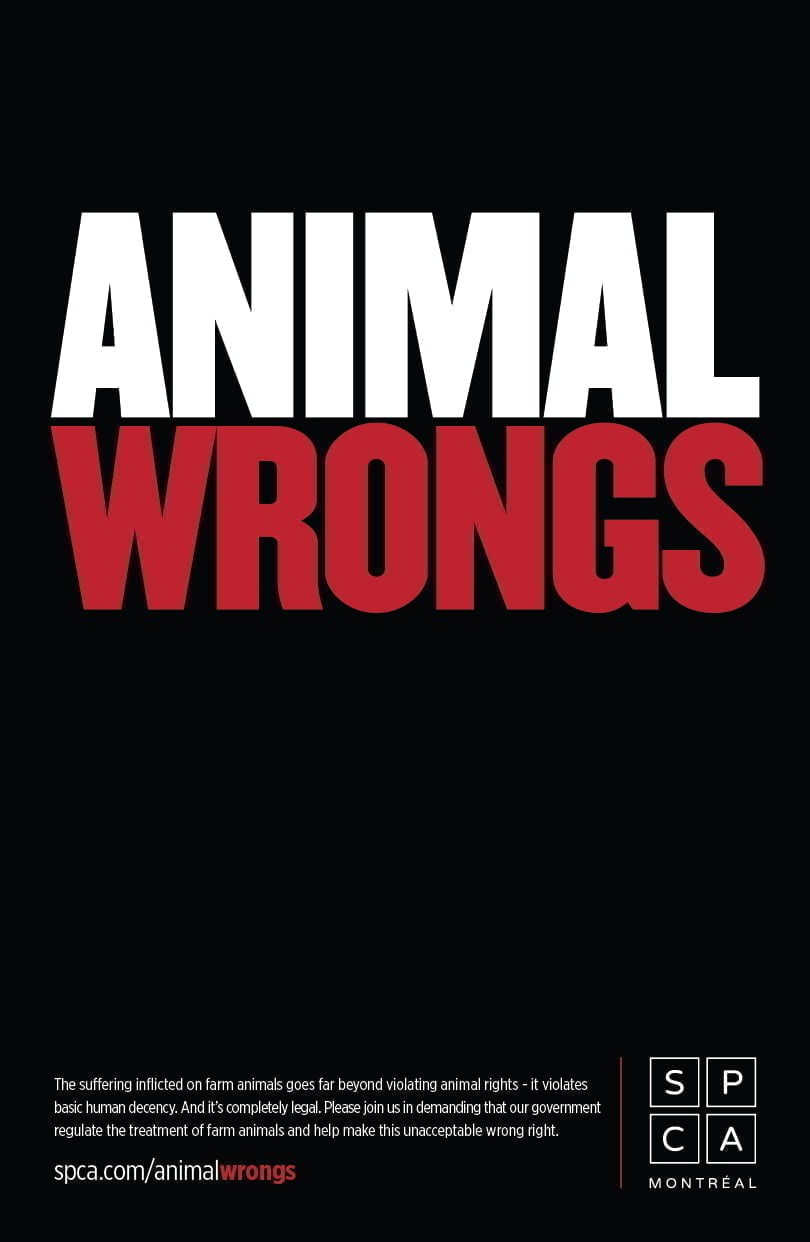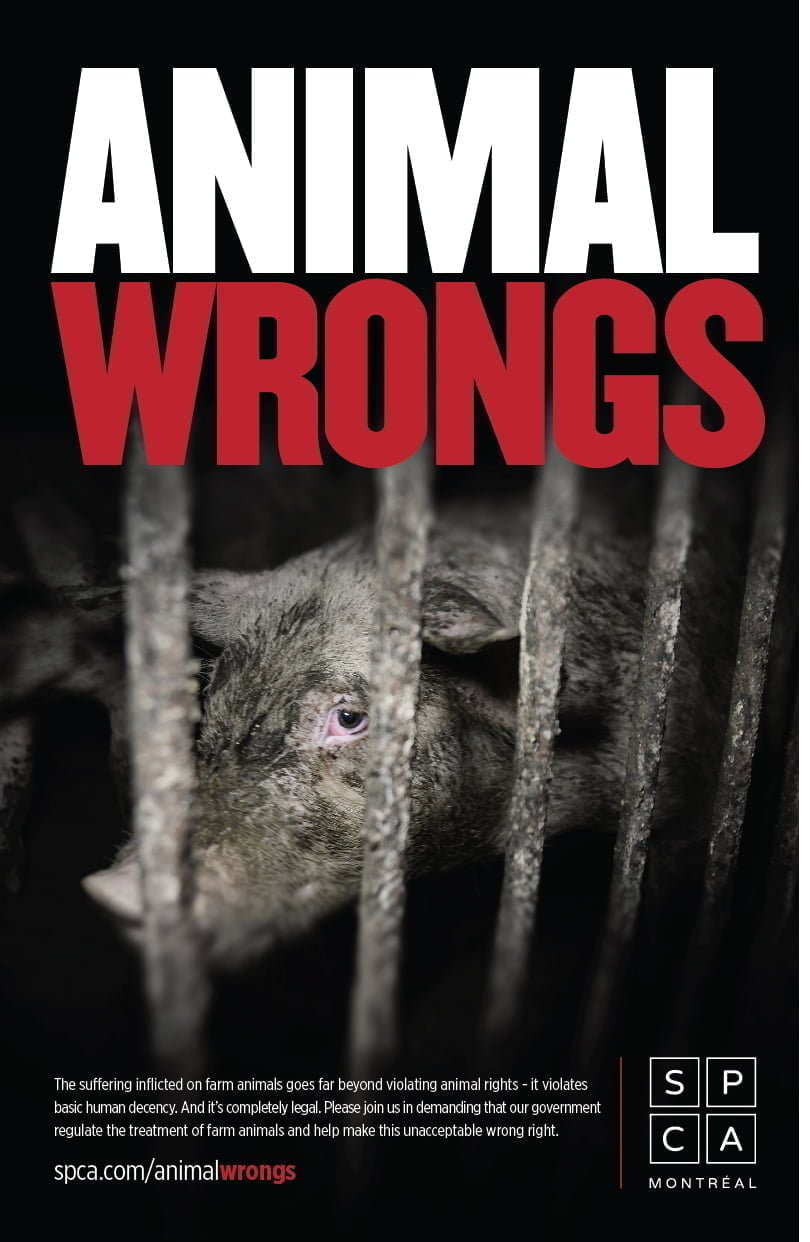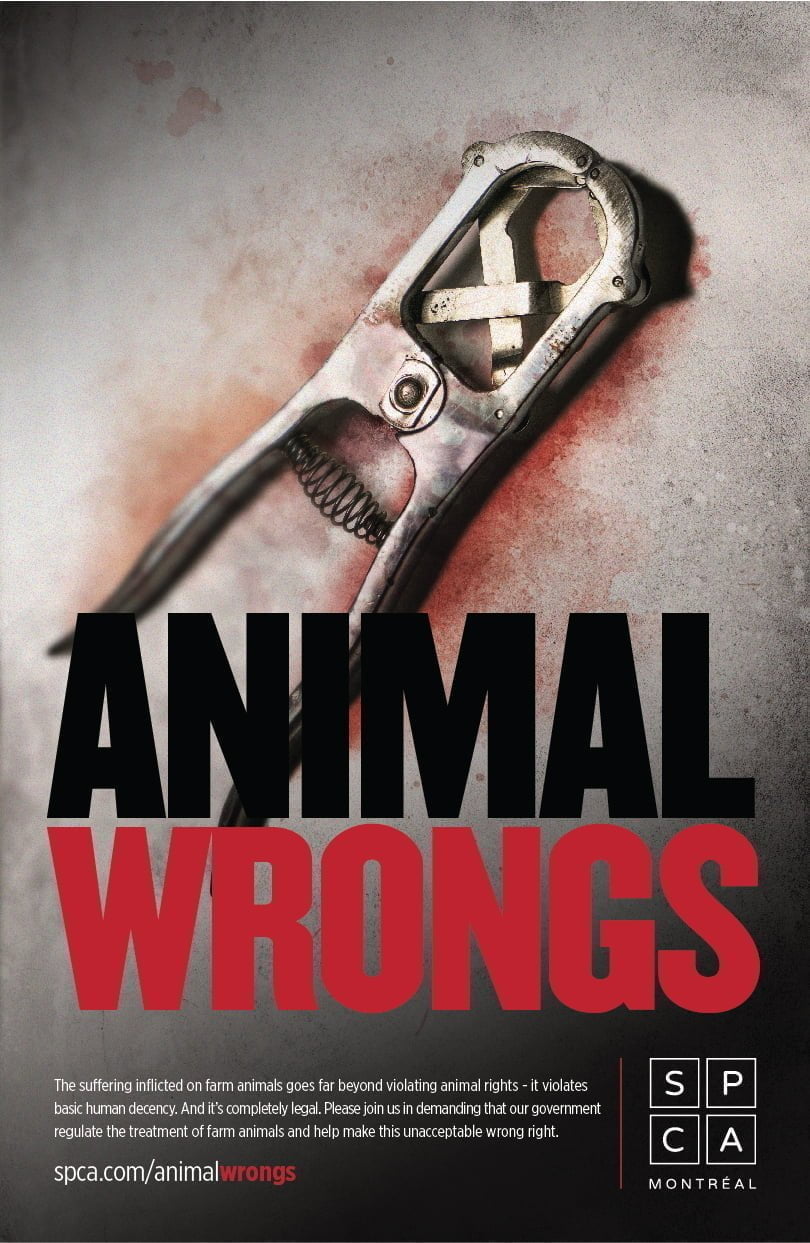The suffering inflicted on farm animals goes far beyond violating animal rights – it violates basic human decency. And it’s completely legal.
In 2015, the Civil Code of Quebec was amended to recognize animals as sentient beings. This new legal framework was supposed to protect all animals from the worst abuses.
Yet the vast majority of animals, those raised for human consumption, are excluded from the key protections granted by the law.
This is why many cruel practices – such as castrating calves and lambs without any anesthesia or analgesia – are routinely performed on farms. These same practices would be totally illegal if performed on dogs or cats.
Practices that are banned elsewhere, but widespread in Quebec
Several practices that seriously compromise the welfare of animals raised for food, and that have been banned elsewhere in the world, are still widespread in Quebec.
Confinement of animals in very small spaces,
which deprives them of the ability to move around comfortably, to engage in their natural behaviours and to interact in a normal way with others of their species. This is the case for laying hens raised in cages, sows confined in gestation and farrowing crates and dairy cows who are permanently tethered.
Systematic mutilation without any analgesia or anesthesia.
For example, castrating calves and lambs; amputating lambs’ tails; partially removing the beak of laying hens and cutting off piglets’ teeth.
IT’S TIME TO PROTECT FARM ANIMALS!
Though the agricultural industry occasionally announces improvements in the living conditions of farm animals, these are proposed as gradual shifts over long periods of time and remain strictly voluntary.
_
If your mailbox does not open automatically after you click on the button below, please download our letter.
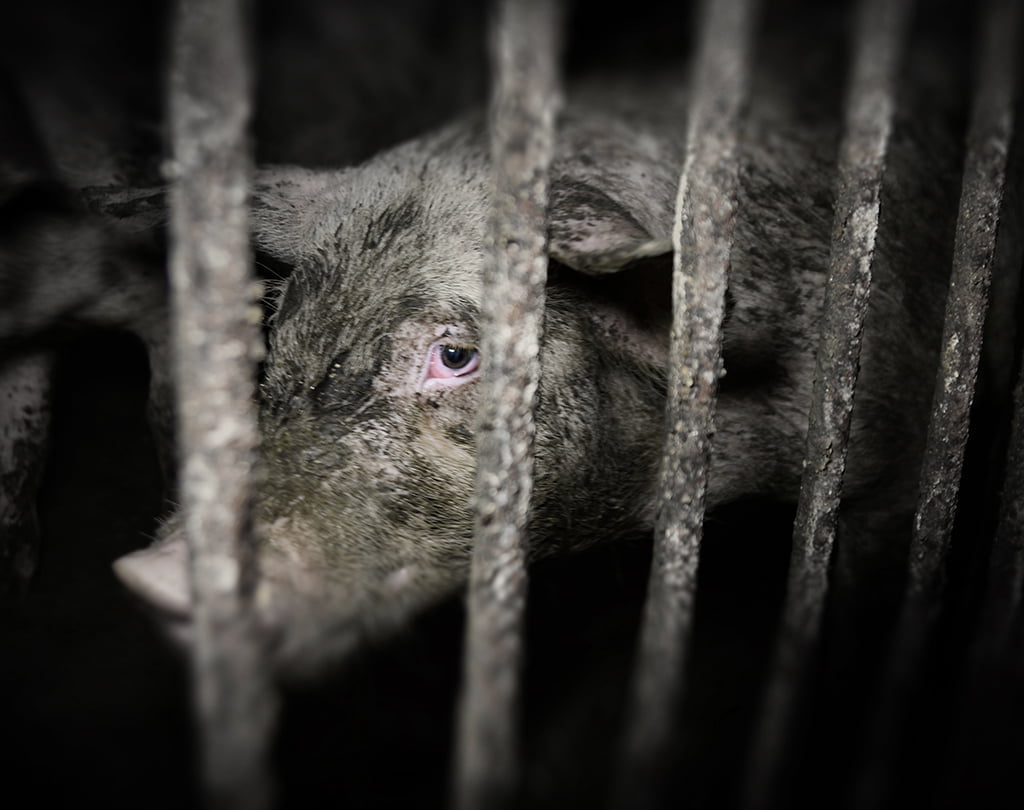
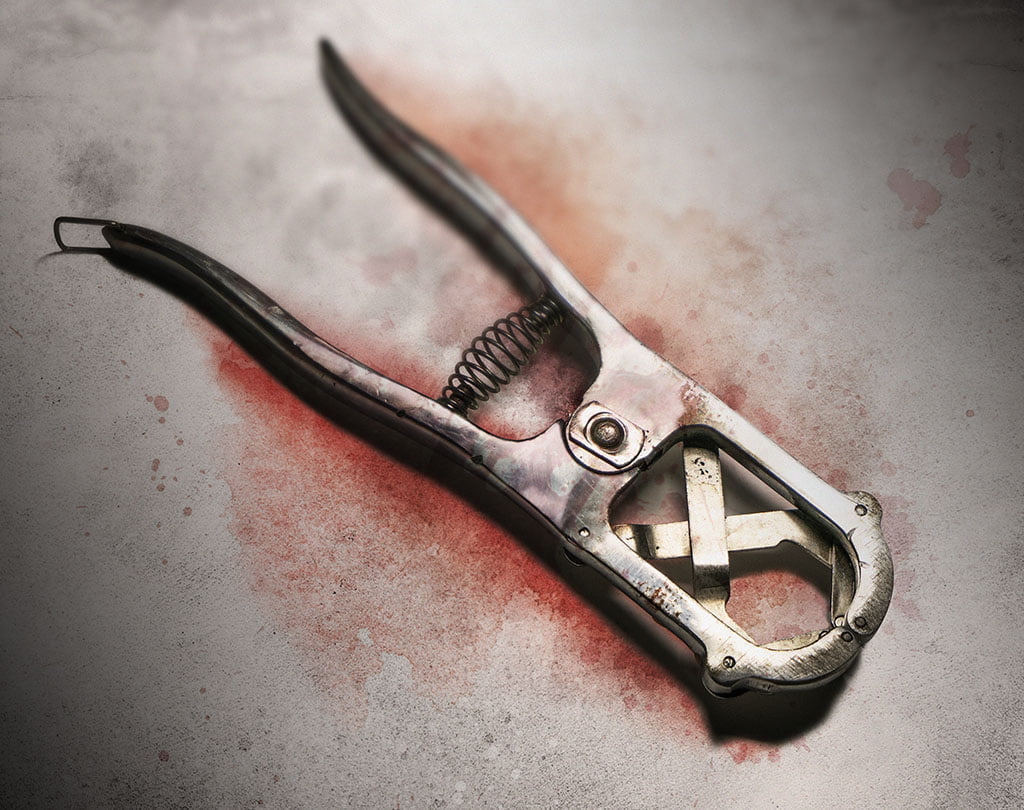
The promise of 2015’s legislative changes
On December 4th, 2015, Quebec’s National Assembly unanimously passed Bill 54, An Act to improve the legal situation of animals. This bill created a new provincial law dedicated exclusively to animal welfare and amended the Civil Code of Quebec to explicitly recognize animals as sentient beings. These legislative changes were supposed to herald the beginning of a new era in terms of our relationship with animals. Yet nothing has changed for farm animals; they continue to be treated as mere commodities.
No legislation regulates the treatment of farm animals
Farm animals receive virtually no legal protection. While there exist federal and provincial laws governing their transport and slaughter, nothing regulates how these animals are treated throughout their lives on the farm.
In fact, the Animal Welfare and Safety Act excludes agricultural activities from its scope provided these are conducted “in accordance with generally recognized rules”. However no such rules are defined in the Act. Thus, so long as a significant portion of the industry adopts a certain practice, it is automatically considered consistent with the “generally recognized rules”. It is therefore the industry itself that determines which practices are legal or illegal, regardless of the degree of suffering they inflict on animals.
National codes of practice
In the agri-food sector, most animal-use industries are involved in the development and periodic revision of codes of practice dealing with the care and handling of livestock. These codes of practice constitute nationally developed guidelines and set out recommended methods of animal rearing. These codes, however, have no legal force in and of themselves.
The provinces of Newfoundland and Labrador and Prince Edward Island have made adherence to the codes of practice mandatory. In 2015, when Bill 54, An Act to improve the legal situation of animals, was introduced, the ministre de l’Agriculture, des Pêcheries et de l’Alimentation du Québec at the time, Pierre Paradis, had committed to, at the very least, making the codes of practice governing the raising of animals for food mandatory. However, to this day, compliance with these codes remains strictly voluntary in Quebec.

